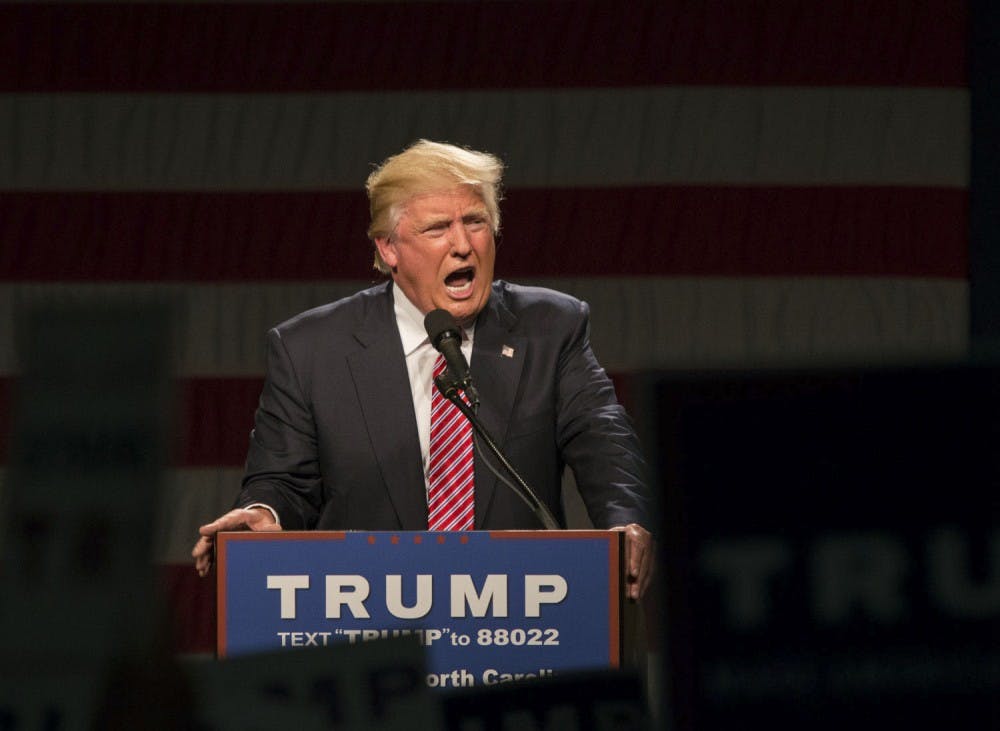“Thus, as of today, the United States will cease all implementation of the non-binding Paris Accord and the draconian financial and economic burdens the agreement imposes on our country,” he said.
However, he said he’s willing to renegotiate the agreement, under terms that would be fair and protect the United States.
In a briefing with Press Secretary Sean Spicer, Scott Pruitt, the environmental protection agency director, diverted multiple questions from reporters about Trump’s beliefs on climate change.
“The focus remained on whether Paris put us at a disadvantage, and in fact, it did. It put us at an economic disadvantage,” Pruitt said. “So that is something that the President focused upon with respect to how it impacted us economically and whether they were good environmental objectives that were achieved as a result of Paris."
Pruitt also said the Paris climate accord did not hold China and India accountable for their carbon emissions.
Dan Crawford, director of governmental relations for the North Carolina League of Conservation Voters, said the agreement wasn’t legally or financially binding and it was about setting precedent.
“It's clearly going to hurt our standing on the world stage, we used to be a global leader and now we're a global joke,” Crawford said. “I think pulling out the accord is another example of that.”
Mitch Kokai, the spokesperson for the John Locke Foundation, said the agreement was much more costly for the United States than it was for other countries.
“Countries like China and India that have been ramping up emissions basically got a free pass for decades before they would ever have to do anything to cut down on emissions,” Kokai said.
UNC senior Shep Byles, an environmental studies major, said that it polarizes the United States' relationships with other countries by not keeping the commitment to the Paris climate accord.
"On the other side of that, I guess it gives other countries an opportunity to rise up and become a future example for addressing climate change and the carbon emissions, especially countries like China, that have now seen the benefits of the changing economy through their development or manufacturing of renewable wind turbines and solar cells," Byles said.
Victor Flatt, professor of environmental law at the UNC School of Law, said the Paris agreement alone wasn’t going to end climate change, but it was a way to further commitment to the problem and that leaving the agreement was foolish.
To get the day's news and headlines in your inbox each morning, sign up for our email newsletters.
“The Paris agreement represents every country — except Syria, now the U.S. and Nicaragua — agreeing that this is a serious problem, that everybody is going to take action to address the problem and they are going to do more and make more efforts in the world,” Flatt said. “And the seriousness in which the rest of the world has taken this shows they understand that in a way that the political leadership in the United States does not seem to.”
Kokai said Trump pulled out of the agreement because it would cost the U.S. economy billions of dollars and wants to renegotiate a better arrangement.
“What this means for the country remains to be seen at this point, but I think that one thing it does signal is that the US is not going to be putting itself in the position of placing handcuffs on our economy just so that the US can go along with this deal that the Obama Administration went into without subjecting it to set review like a treaty,” Kokai said.
Flatt said he’s concerned that the political leadership in the United States doesn’t have an understanding of climate change.
“And what really surprised me, is that a lot of the people, a lot of people in the Republican party don't seem to have an appreciation of the severity of what is coming, and it's strange.”




